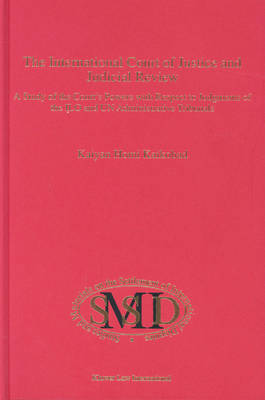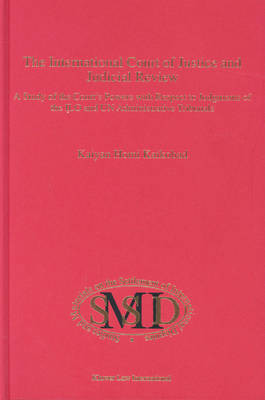
- Retrait gratuit dans votre magasin Club
- 7.000.000 titres dans notre catalogue
- Payer en toute sécurité
- Toujours un magasin près de chez vous
- Retrait gratuit dans votre magasin Club
- 7.000.0000 titres dans notre catalogue
- Payer en toute sécurité
- Toujours un magasin près de chez vous
The International Court of Justice and Judicial Review
A Study of the Court's Powers with Respect to Judgements of the ILO and Un Administrative Tribunals
Kaiyan Homi Kaikobad
398,45 €
+ 796 points
Description
This monograph provides an extensive analysis of the powers of judicial review exercised by the International Court of Justice with respect to judgments of the Administrative Tribunals of the International Labour Organization and the United Nations. The grounds on which these judgments can be challenged include excess jurisdiction, procedural errors and errors of law relative to the Charter of the United Nations. The system, however, suffers from a number of difficulties, including lack of procedural equality, the propriety of employing the Court's advisory jurisdiction in employer-employee disputes, and the nature of the activities of the Review Committee of the General Assembly. These problems are examined with a view to shedding light on the nature, scope and extent of the Court's powers of judicial review. The main study is preceded by an exhaustive survey of the genesis of the review system established by the Statutes of these Tribunals. Included also in this volume is an account of the informal and rudimentary judicial review arrangement the Court enjoys by way of its advisory and contentious jurisdiction with respect to institutional action other than that of UNAT and ILOAT judgments. When in 1995 the General Assembly abolished the UNAT review system, various considerations were in the forefront: a detailed survey of which is provided in the penultimate part of the book. Several significant themes are explored in the concluding chapter. These include issues dealing with the motivation for establishing the review system, the divisions within the Court and possible reform, as opposed to abolition, of the system.
Spécifications
Parties prenantes
- Auteur(s) :
- Editeur:
Contenu
- Nombre de pages :
- 384
- Langue:
- Anglais
- Collection :
- Tome:
- n° 6
Caractéristiques
- EAN:
- 9789041114716
- Date de parution :
- 01-09-00
- Format:
- Livre relié
- Format numérique:
- Genaaid
- Dimensions :
- 243 mm x 165 mm
- Poids :
- 734 g

Les avis
Nous publions uniquement les avis qui respectent les conditions requises. Consultez nos conditions pour les avis.






